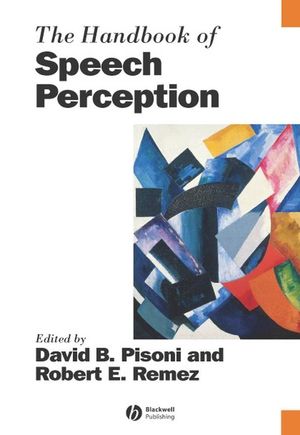The Handbook of Speech PerceptionISBN: 978-1-4051-7641-5
Paperback
722 pages
October 2007, Wiley-Blackwell
 This is a Print-on-Demand title. It will be printed specifically to fill your order. Please allow an additional 10-15 days delivery time. The book is not returnable.
|
||||||
–Sheila E. Blumstein, Brown University
"This is a most welcome book. For the expert who is well aware
of the complexity of the issues and methods in speech perception,
this handbook is a godsend for its thoroughness. It covers the
field from a to z including, most notably, extended examination of
the challenges that speech variability presents to the listener and
that special listeners face. For the student or researcher from
outside the field, the handbook is a lively introduction to the
extraordinary progress that the study of speech perception has
enjoyed over the last few decades."
–Gary Dell, University of Illinois,
Urbana-Champaign
"This real treasury marks the maturity of the field of speech
perception, making the whole body of work widely available in one
volume as never before. The core of experimental studies in young
adults that defined the field 30 years ago was based in phonology,
acoustic phonetics, perception psychology, and physiology. The
editors are to be congratulated on updating these roots, while
reflecting the kaleidoscopic extension into studies with infants,
the elderly, and distinct patient groups, and consolidating the
link to neuroscience."
–Mark Haggard, MRC, Cambridge, UK
"This is a necessary volume. At a time when advances in our
understanding of speech perception are as likely to come from
functional imaging techniques, Optimality Theory, or the study of
speech perception mediated by cochlear implants, researchers need a
single volume that captures the state of inquiry across the
spectrum of speech research. Pisoni and Remez have assembled a
wonderful resource."
–David W. Gow, Jr., The Massachusetts General
Hospital
"With the addition of this volume to the Blackwell series of
handbooks in linguistics, the study of speech perception takes its
rightful place as an independent and mature subdiscipline of
linguistics. Covering a wide range of topics, from the encoding and
neural representation of speech to the recognition of linguistic
and paralinguistic properties by a variety of listener populations,
this volume both surveys the current landscape of speech perception
research and sets an agenda for the future development of the
field."
–Ann Bradlow, Northwestern University



